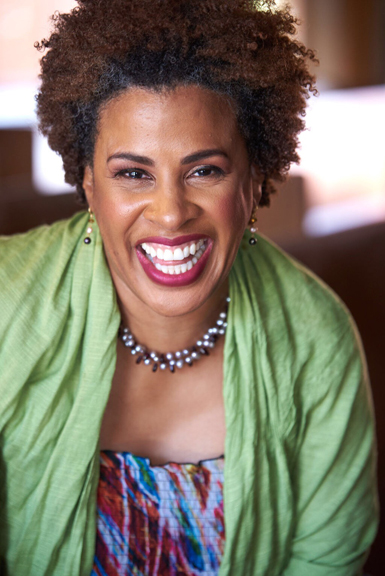QUESTION: I’m a widow, 79 years old and a chronic worrier. I know it doesn’t make sense because I’m also a Christian and attend church regularly. My problem is I get really upset and worried when my family travels. Right now, one of my daughters and her husband are in Haiti helping a medical team and my other daughter, her husband and my two grandchildren are in Southeast Asia.
I guess I’ve never learned to “let go and let God” even though I pray regularly for all of them. I am so relieved when they all return safely! What am I doing wrong that I can’t seem to trust that everything will turn out all right?
~ Worried Mom
Dear Worried Mom,
Please be gentle with yourself. We moms have been taught to associate worry with concern. For many of us, to say we are not worried would mean that we aren’t concerned. So forgive yourself for mixing worry with concern and thinking they mean the same thing. They do not. Worry is a practiced emotion/state of mind. The way out of constant worry is to practice a different emotion/state of mind. Here are some simple ways you can practice a different state of mind:
a) Gratitude. Gratitude is the key to unlock God’s strongbox. The more you openly express gratitude the more Spirit gives you to be grateful for. Whenever you feel concern for your children, use it as an opportunity to express gratitude for all the good they’re doing in the world and how grateful you are that they’re making a difference in the lives of so many people.
b) Words of affirmation. The Kingdom of God within us is voice activated. Whenever I find myself in a state of worry, I use the power of my spoken word to charge up the atmosphere around me. One of my favorite go-to mantras is: “I AM one with God; I AM one with all life; I AM one with all people; I AM one with the One. Wherever I AM, God is.” You can personalize that statement with your children’s names, i.e. Susan is one with God…
c) Music. The power of music is that it slips right past the conscious mind into the heart (or subconscious mind). Whenever I cannot shift my energy through gratitude or words of affirmation, I know I can rely on music to do the trick. So I put on a good record (I know! I’m dating myself with that word) and dance the blues away.
Bottom line: you are not doomed to sit in a state of worry. Spirit has given us many tools to “chase the blues away.” We just have to have the wisdom and the courage to use what we’ve got to create what we want – peace of mind. I bless you to release the mindset of worry and embrace a permanent attitude of gratitude. May you and your children prosper at everything you put your hands to.
Richest blessings,
Rev. Sherri James
revsherri@upchurch.org
Dear Worried Mom:
Let me begin by saying I’m convinced that worry must be one of those universal emotions and conditions that all of us deal with. Our worry comes from many sources: fear of the unknown, the unpredictability of life, unmet and unrealistic expectations, and a whole host of issues. And certainly it’s a normal thing to have cares and concerns for those we love. That’s the essence of love for others. Concern for the safety of the ones we care the most about is an expression of that love. But I sense your tendency to be a “chronic worrier” is based on your inability to trust the Lord fully.
It would do us well though to remember that we have a savior who lived life just like we do. In fact, Hebrews 4:15 tells us, “For we do not have a high priest who is unable to sympathize with our weaknesses, but we have one who has been tempted in every way, just as we are – yet was without sin.” Jesus had a lot to say about worry in the Sermon on the Mount recorded in the Gospels of Matthew and Luke. In essence, He said that you can’t change situations by worrying about them. Someone once said: “Worry is like a rocking chair. It gives you something to do, but it doesn’t get you anywhere.”
Paul told the Philippian believers (who apparently had a problem with worry), “Don’t worry about anything; instead, pray about everything. Tell God what you need and thank him for all he has done. Then you will experience God’s peace, which exceeds anything we can understand. His peace will guard your hearts and minds as you live in Christ Jesus” (Philippians 4:6-7).
When I’m overly-concerned about my loved ones (or anything else for that matter), I often turn to the 37th Psalm, verses 1-9, when David gives us some good advice for dealing with worry: Three times in these verses he says, “Do not fret.” He goes on to say that we should (verse 3), “Trust in the Lord and do good;” (verse 4) “Delight yourself in the Lord;” (verse 5) “Commit your way to the Lord” and “trust in him.” He also says we need to (verse 7), “Be still before the Lord and wait patiently for him;” (verse 8) “Refrain from anger and turn from wrath;” and finally in verse 9, “hope in the Lord.”
I’ve learned that you can’t trust, delight, commit, be still, wait patiently and hope in the Lord and worry and fret at the same time. Worry is the enemy of faith. It takes away our peace and it keeps us bound up in fear. Jesus teaches us that, no matter the issue we are facing, God knows. We serve an all-knowing, all-caring God who is intimately invested in our lives and knows what we need even before we do.
I suggest you do what Jesus said to do: “Seek His kingdom, and these things (what you ask for) will be given to you as well” (Matthew 6:31). Turn your worry into prayer – for their safety and for God to use them. Then trust Him and wait patiently for Him to bring them back to you.
Blessings!
Pastor Randy Foster
randy.clc@att.net
QUESTION: I have a couple of friends who are at odds with one another. When I’m with one of them, they say not nice things about my other friend and vice versa. I always respond by saying, “She’s my friend.” I refuse to take sides; I’m like Switzerland – neutral! I’ve been thinking though, if there is something I can say that might help them reconcile? I’m at a loss for words. Help!
~ Everybody’s Friend
Dear Everybody’s Friend,
I commend you on your ability to bridge the gap that seems to exist between the two persons you are mentioning. It is always a difficult place to be in not to take sides or to be swayed one way or another when others use you as a sounding board for their view of a conflicted situation. But it is also very draining upon the relationship to always have to hear negative comments about another friend whom you regularly see.
As for some advice on how to help with a reconciliation my first response would be to share with them some wisdom that many of us learned while we were young: “If you cannot say anything nice, don’t say anything.”
This may begin a conversation about your feelings being strained in the situation as you hear the constant negativity about another friend. At least by declaring a certain conversation “off limits” it may raise some awareness of how the situation has an effect on all of those involved.
I would also invite you to, again, be a bridge builder by creating the opportunity for these friends to come together and work on bettering their relationship. Although Switzerland is able to be neutral, it has not really had the influence to bring together conflicted parties. You, however, do have that power. Be the friend who cares enough for each of the other friends to bring them together to begin the work of forgiveness and reconciliation that may lead to a stronger and better relationship for all of you.
One for all and all for one,
Pastor Scott Peterson
pastor@lcifoothills.org
Dear Everybody’s Friend,
Who in this world has not found oneself in this uncomfortable situation? Of course, as with every situation on life’s journey that presents itself, sadly and also triumphantly, it is up to the individual to find the way through and out the other side.
For one thing, it is a sin to say bad things to one person about another person to a third person. Jewish tradition, including Talmud, [offers] endless commentary through the ages and cautionary tales [that] say the same thing every time; this is called the “Evil Tongue” (lashon hara) and should be avoided at all costs!
The correct way to deal with grievances between two adults is ideally for one adult to talk it out with the other as respectfully as possible. Indeed, even if you are present at this exchange, it is not okay for another adult to jump into the discussion. The idea is that the two adults involved in the matter need to work it out for themselves; another person cannot know all of what has passed before between the two.
Of course, you can approach a third party to talk through feelings and clarify issues for yourself so that you will be better prepared to navigate a good outcome. However, the third party should never be used in the way you have described. Spreading information to create enemies and escalate the grievance by lobbying others to think badly about someone else is making the world worse in God’s eyes.
Therefore, you must stand up for yourself and say that you will not listen to this kind of gossip, not only because the object of gossip is your friend but because the practice is not okay with you.
If they are open to more you might suggest they try to process their feelings by writing them down or maybe talking to a therapist. Finally, they can try working it through with the one who they have the problem with.
Problems are only truly solved when the original participants fix it between themselves. All you will get by listening to gossip is the feeling of being dumped on. It will be a bit uncomfortable to stop the dumping at first but, by doing so, you will put an end to destructive and repetitive dips into these murky waters.
Here’s to a fresh and clean new day for you and your friends.
Rabbi Janet Bieber
jbieber1155@aol.com




